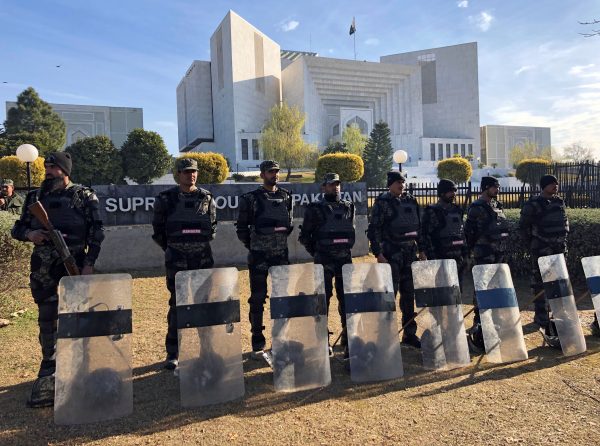- Get link
- X
- Other Apps
- Get link
- X
- Other Apps
Former PM Imran Khan Writes to Army Chief, Bushra Bibi Causes Stir
In a recent development, former Prime Minister of Pakistan, Imran Khan, has announced that he will be writing a letter to the current Army Chief, General Asim Munir. According to Khan, the letter will not be written from a political standpoint, but rather in the "national interest" and the "welfare of the nation." This move by the former Prime Minister has sparked significant interest and speculation within the country.
Alongside this, another intriguing development has emerged from within Imran Khan's inner circle. His wife, Bushra Bibi, has reportedly been in a foul mood and refused to sit with Khan's sisters during a recent visit to the jail where he is currently being held. This incident has exposed the internal divisions and tensions within the Khan family, which could potentially lead to new problems and challenges for the former Prime Minister.
Tensions Between the Judiciary and Intelligence Agencies
The ongoing tensions between Pakistan's judiciary and its intelligence agencies have also come to the forefront. The Supreme Court and the High Courts, particularly the Islamabad High Court, have been under immense pressure from the country's premier intelligence agency. This pressure has led to a situation where the judges feel "emasculated" and "under pressure" from both the public and the media, as well as from within their own homes and families.
The Sindh High Court's recent decision to dismiss a petition filed by Imran Khan's political party, Tehreek-e-Insaf, regarding a rally in Karachi, is a prime example of the judiciary's weakened position. The court's order, which advised the Deputy Commissioner to consult with all stakeholders and find a solution, rather than issuing a definitive ruling, highlights the court's inability to assert its authority in the face of external pressures.
Lahore High Court Chief Justice Under Scrutiny
The situation is not limited to the Sindh High Court alone. The Lahore High Court's Chief Justice, Shahzad Ahmad Khan, has also been the subject of tensions between the provincial government and the judiciary. The Punjab government has formed a committee to appoint judges to anti-terrorism courts, which has led to a rift between the Chief Justice and the government.
This tug-of-war between the judiciary and the intelligence agencies, as well as the provincial governments, has created a climate of uncertainty and instability within Pakistan's legal system. The judges, who are supposed to be the guardians of the rule of law, are finding themselves increasingly emasculated and unable to deliver justice effectively.
Implications for Pakistan's Foreign Policy
The tensions within Pakistan's domestic landscape have also had implications for the country's foreign policy. The recent agreement between India and Iran to develop the Chabahar port, which was signed on Monday, is a case in point.
Pakistan's Foreign Office spokesperson, Mumtaz Ara Baloch, when asked about the agreement, stated that Pakistan does not comment on the bilateral matters of other countries. However, this move by India and Iran holds strategic significance for Pakistan, as it could potentially undermine Pakistan's efforts to maintain its influence in the region, particularly in Afghanistan and Central Asia.
The Chabahar port project, which India has been pursuing since 2003, has been viewed as a strategic counter to Pakistan's Gwadar port. With the new 10-year agreement in place, India will be able to invest hundreds of millions of dollars in the development of the Chabahar port, allowing it to expand its trade and economic influence in the region.
This development comes at a time when Pakistan is facing increasing pressure from the United States regarding its dealings with Iran. The State Department's spokesperson, Vedant Patel, has warned countries engaged in business with Iran that they may face sanctions. However, India's Foreign Minister, S. Jaishankar, has responded by stating that India will address the United States' concerns and provide evidence to convince them of the importance of the Chabahar port project for regional development.
The tensions within Pakistan's domestic landscape, coupled with the country's foreign policy challenges, paint a complex picture of the current state of affairs in the country. As the situation continues to evolve, it remains to be seen how the various stakeholders, including the government, the judiciary, and the intelligence agencies, will navigate these turbulent waters and find a way to restore stability and balance within the system.
- Get link
- X
- Other Apps





Comments
Post a Comment